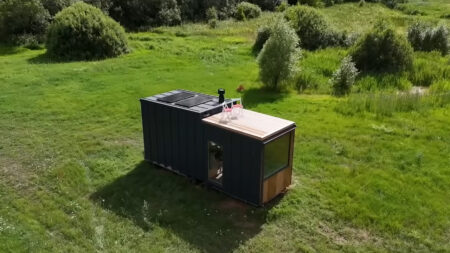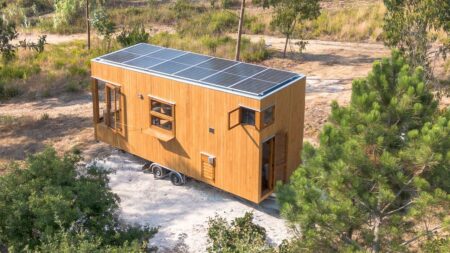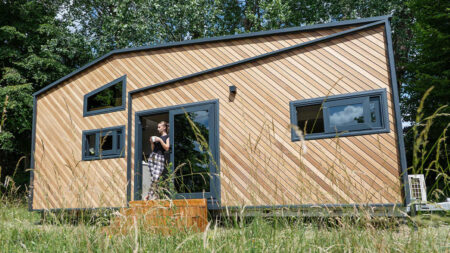Simplicity is the core of KONGA’s latest off-grid cabin. It is a modular building that requires no particular foundation and can be constructed on-site within one day, claims the Lithuanian kitchen manufacturers who are now dipping their toes in prefab house building.
The tiny house is powered by solar panels on the rooftop and features a wood stove with a water heating system alongside a rainwater collection system. However, the biggest talking about the rectangular prefab is the fact that it is built using offcuts from the company’s kitchen manufacturing.
Designed by Danish architect, Mette Fredskild, the KONGA prefab cabin serves as a highly adaptable modular house in terms of user needs. Whether you are looking for a backyard house or a productive workspace, KONGA’s off-grid cabin caters to all your needs.
Celebrating natural material and craftsmanship, the KONGA cabin boasts burnt wood on the exterior façade while oak veneer panels cladding on the inner walls dominate the indoors. The simplicity and elegance are the biggest highlights of the cabin which features an open floor plan, designed to be flexible.
The company has tried to keep interior as minimal as possible. Accommodating four people, the cabin features two separate sleeping areas. One of these areas can be transformed into a workspace while the other stays true to its core of being a bedroom. There is also a kitchen space filled with a refrigerator, gas stove, sink, and a well-planned storage area. Opposite the kitchen is a wood burning stove with a water heating system. Of course, there is a bathroom equipped with a shower to keep you clean throughout.
One cannot ignore the fairly large living area that opens out onto a porch. It comprises chairs, stools, and other furniture that is crafted primarily from oak. Comprising other nitty-gritty essentials and enough storage space, the house also features upper push-to-open cabinets that can be easily used for storing items.
Also Read: Tini M Prefabricated House is Perfect for Flexible and Minimalist Living
Dwell notes, the company uses waste materials from the brand’s kitchen production unit which are then incorporated into the cabin construction. Overall, an amalgamation of comfort and sustainability, the off-grid cabin operates independently without relying on the utility power system.
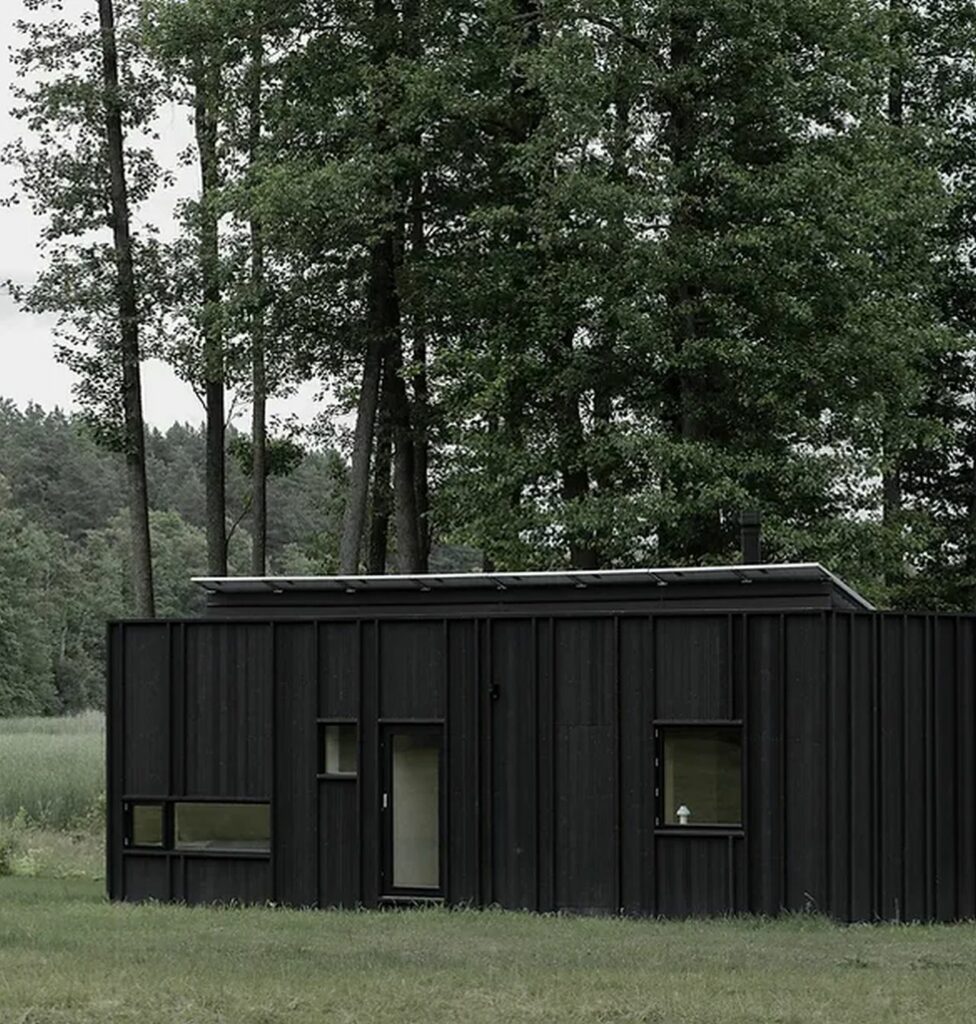
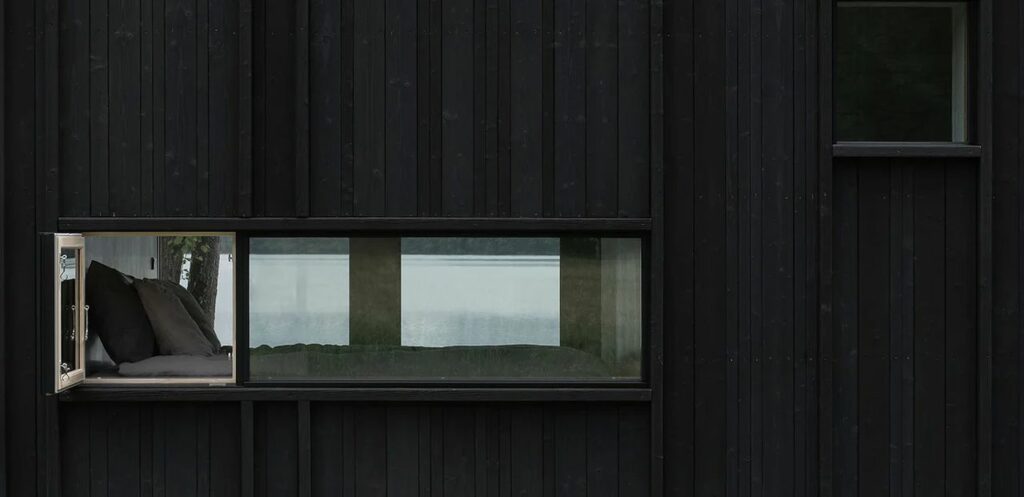
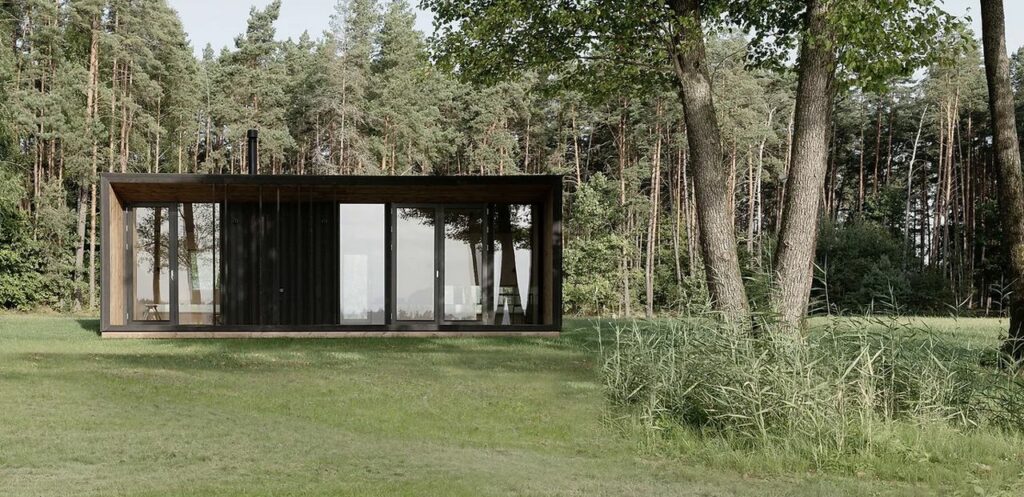
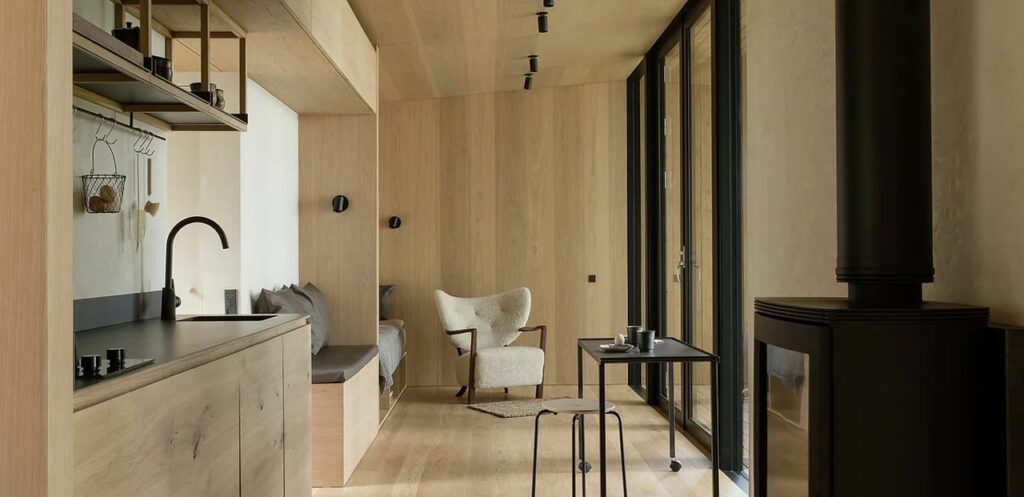
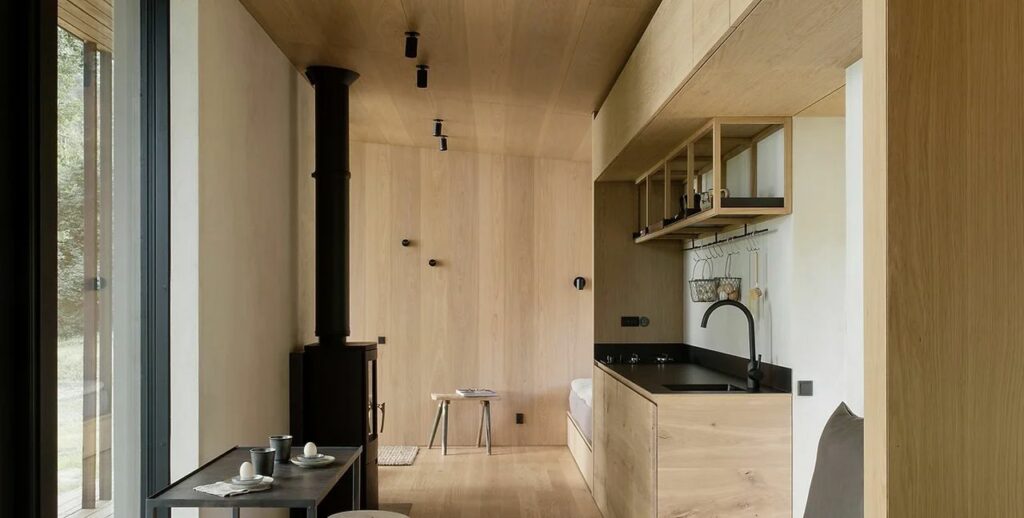
Follow Homecrux on Google News!

